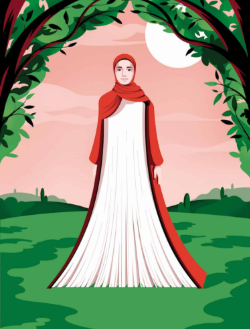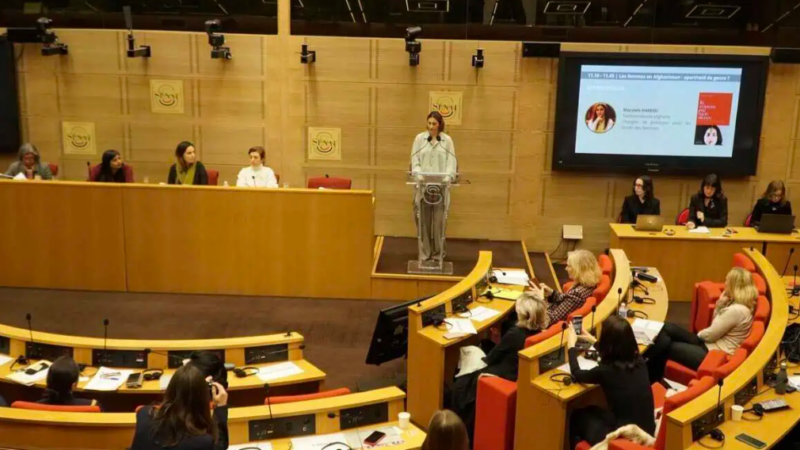An account of bravery: the initiative preserving the voices of Afghan women

It’s August 2021. Imagine being a woman in Kabul – a woman who loves words, who loves to write. Who keeps in touch with fellow women writers on WhatsApp as the Taliban advances, seizing city after city, until, with shocking rapidity, they’re in Kabul itself …
A woman like Marie (not her real name), who worked with a German NGO, and remembers how: “One of the girls left a message saying that the Taliban had started a house-to-house search, so it would be best to destroy any documents showing that we had worked with foreign organisations. This message was like a sledgehammer. We spent the day putting all our family’s books and papers in a bucket for my father to set fire to. As each sheet was burning, I felt as if a part of me was burning. For my survival, I have to destroy with my own hands the things that I value the most.”
Or like Zainab, who describes how she “boiled some water and added a little dishwashing liquid. I go through my notebooks and manuscripts one by one and soak them … My father told me that the ashes of all these books cannot be hidden, but if you soak them in foamy water and then wash them like clothes, no trace of your writings will be left. Now that the Taliban are here, my words are just a pile of rubbish.”
These stark recollections come from My Dear Kabul, an extraordinary new book composed of the messages an Afghan women’s writers’ group shared with each other as their world collapsed. The shock of seeing Taliban on the streets outside their home. The agonising decisions: to carry on going to work or college, or to hide? The courage, and fear, felt by those who dared to take to the streets, demanding their rights despite the threat – sometimes the blows – of whip-wielding militants.
Some managed to escape the country and find sanctuary abroad, an often heartrending decision to leave homeland and family behind. Others, through choice, or lack of it, stay. But many kept in touch, as My Dear Kabul records.
The book is the product of Untold Narratives, a project founded by Lucy Hannah, a journalist and producer who’s worked in Afghanistan. Its aim, Hannah says, is to help writers, particularly women who have been “marginalised by community or conflict” to get their voices heard. Its Paranda network brings together Afghan women like Marie and Zainab, helping them continue to share and write together, even though separated by borders or – for those remaining in Afghanistan – seeing their freedom massively constrained.
The strength of their stories was demonstrated by the success of the anthology, My Pen is the Wing of a Bird: New Fiction by Afghan Women. Published in 2022, it was named a Book of the Year by the Financial Times. Translated into English from Dari and Pashto, the range and sophistication of its writing took some readers by surprise, accustomed as they were to the stereotypical image of Afghan woman as burqa-clad and submissive.
Among its contributors is Marie, who talks to me from her new home in Germany. She smiles as she recalls conversations with well-meaning locals, who express surprise that she could speak English, let alone be a published writer. “[They thought] Afghan women like to wear hijab, we like to let the man be the breadwinner, we like to live under the Taliban!”
So, she makes sure, she says, that they know that “we are eager to learn, eager to work, and not be dependent on men”. And that’s the message she conveys in her writing, too.
So, what of the future? Having seen the power of the Taliban at first hand, Marie is realistic – but hopeful. “This regime is not chosen by the people,” she says, eyes shining. “It cannot last for ever. We have a proverb: ‘At the end of every night, there is a morning. At the end of every darkness, there is sunshine’. And meanwhile, we are writing.”
In one of the messages captured in My Dear Kabul, Zainab comments that “as of now, all our hopes and dreams are imprints on the water”. But thanks to Untold Narratives, their words, at least, are now imprints on a page, indelible and defiant.






